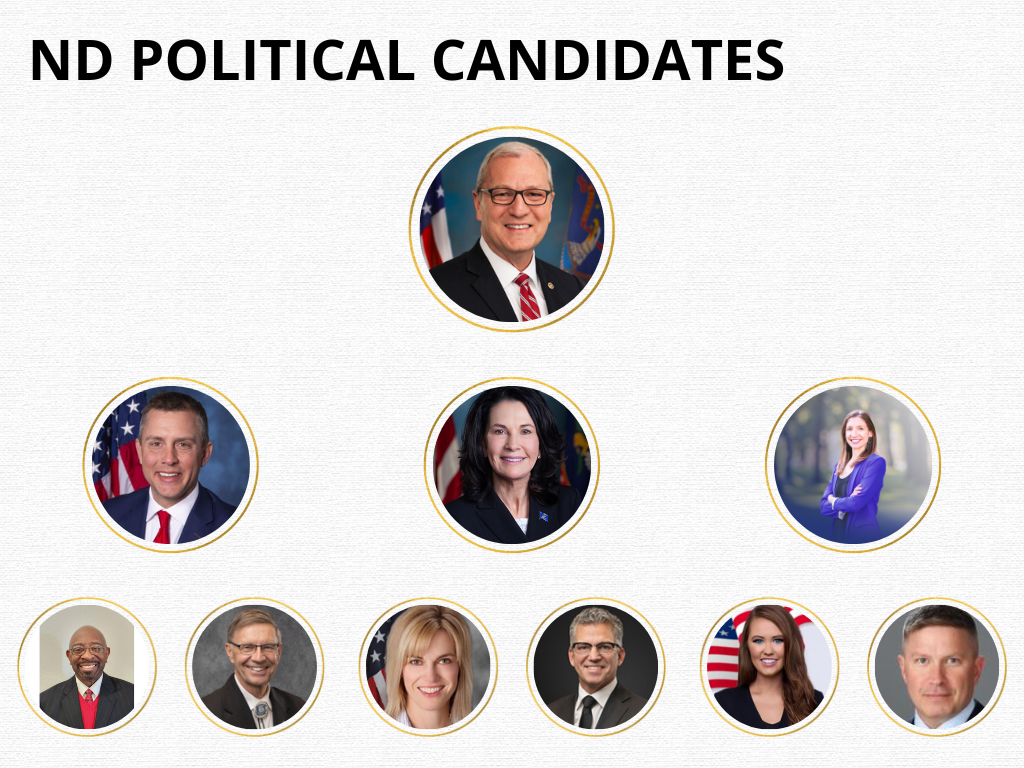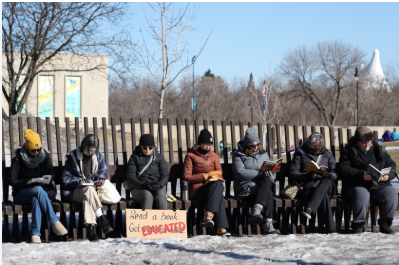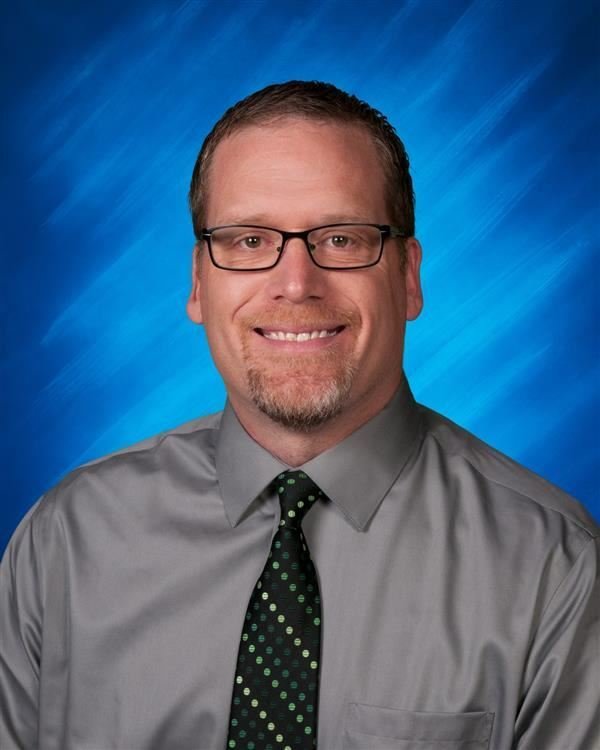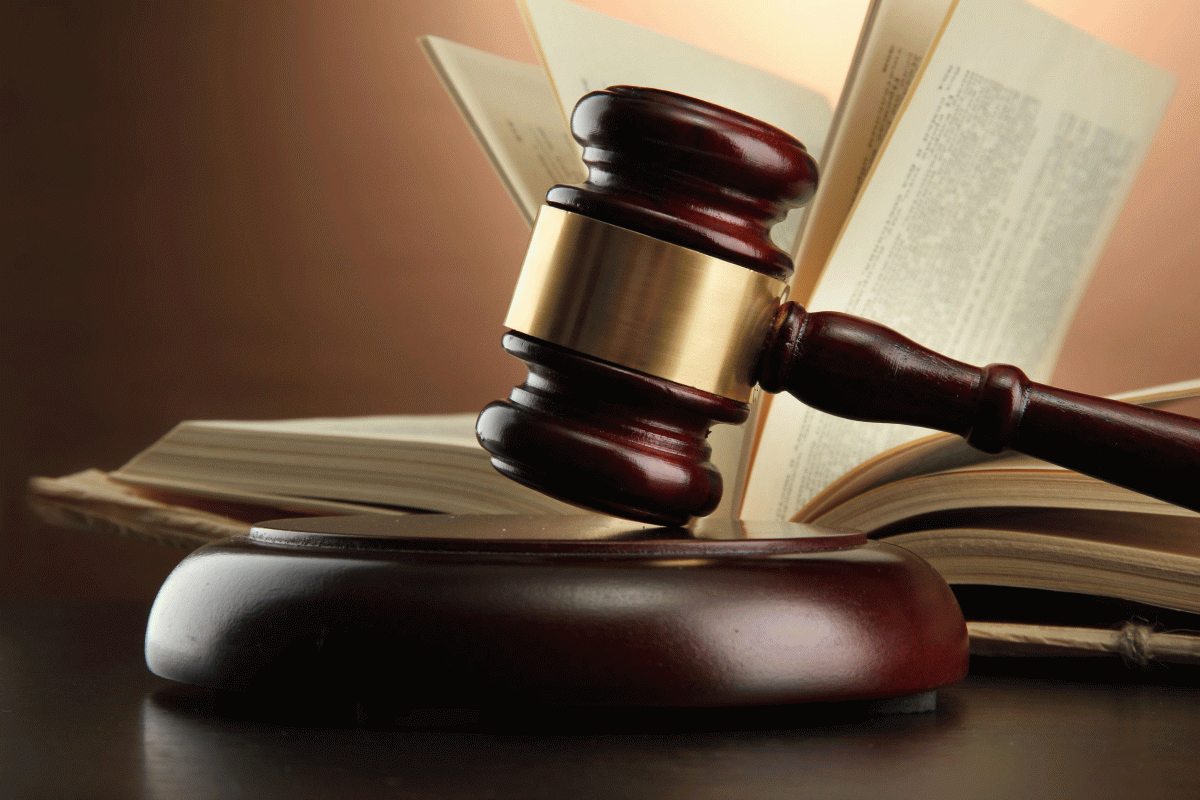For those who haven’t noticed, it’s political campaign season and in North Dakota, there are three important races to follow. The Governor of North Dakota position, the seat for the U.S. House of Representatives, and one U.S. Senate seat are up for election. All states except New Hampshire and Vermont have their governors serve four year terms, which means the Governor of North Dakota is elected every four years. The U.S. House of Representatives has two year terms and the U.S. Senate has six year terms.
The biggest race for North Dakota is for Governor due to Doug Burgum announcing he won’t seek a third term. Burgum would be the last governor to have a third term under a grandfather clause, due to North Dakota limiting governors to two terms in 2022. The 33rd Governor of North Dakota was first elected back in 2016 with no political experience and since then Burgum campaigned for president before suspending his campaign. Since Burgum announced he won’t be running for reelection, there has been speculation about a possible role for Burgum in a potential second Trump administration. Burgum has since called the talk hypothetical.
A mixture of names have been declared to be running for Governor: Kelly Armstrong (R), Tammy Miller (R), Michael Coachman (I), and Merrill Piepkorn (D). Democrat Travis Hipsher ended his campaign making way for Merrill Piepkorn to announce his campaign. The Independent and Democratic candidates are smaller names, with Coachman being an Air Force veteran and Piepkorn a state senator, compared to the Republican candidates. Armstrong is our current and only U.S. Representative, serving since 2019, while Miller was the lieutenant governor for Burgum. Burgum has subsequently endorsed Miller, and Armstrong has been endorsed by the Secretary of State of North Dakota, Michael Howe. Armstrong has also been endorsed by U.S. Senators, Kevin Cramer and John Hoeven.
Seen as Armstrong won’t be running for the U.S. House of Representatives, the pool of candidates has a handful of Republicans entering the mix. Out of the four candidates, there is one Democrat and three Republicans: Julie Fedorchak (R), Alex Balazs (R), Rick Becker (R), and Trygve Hammer (D). Fedorchak is a member of the North Dakota Public Service Commission, Balazs is a farmer and former U.S. State Department project manager, Becker is a former state representative, and Hammer is a teacher. Fedorchak and Becker exceed the rest in endorsements with 88 endorsements all together. A few notable endorsements of Fedorchak include Burgum, Hoeven, and former U.S. Secretary of Agriculture and former Governor of North Dakota, Ed Schafer. Becker has more recognizable endorsements with national names like Sen. Rand Paul and entrepreneur and former 2024 presidential candidate Vivek Ramaswamy. Update: former Miss America Cara Mund has announced her candidacy for U.S. House, more to come.
The U.S. Senate is the last race and probably the least talked about, even though it could turn out to be an interesting race for Senator Kevin Cramer who is running for reelection. Cramer was the U.S. Representative for North Dakota before he was elected as a Senator in 2019. His opponent is Katrina Christiansen, an engineering professor for the University of Jamestown and the Democratic nominee for the U.S. Senate in 2022. Two former North Dakota Agriculture Commissioners, Roger Johnson and Sarah Vogel, have since endorsed Christiansen while Cramer has been endorsed by more organizations than people. ClearPath Action Fund, a nonprofit organization that focuses on conservative clean energy, and the American Israel Public Affairs Committee have endorsed Cramer, but it is unclear if former President Trump will endorse him or any of the Republican candidates for these races.
This is the beginning of the races so things can change in the months to come. In the meantime, voters should educate themselves on the things and people who will be on the ballot. Remember the primary elections, where voters decide the nominees for the general election, are scheduled for June 11. The general election will be Tuesday, Nov. 5, 2024.
North Dakota is the only state where you don’t have to register to vote. North Dakota has closed primaries, so you can only vote in one party’s primary. Despite possibly being the best way to influence potential leadership, the primaries are often poorly attended: only 18 percent of eligible voters voted in the June 2022 primaries, and 28 percent in the June 2020 primaries. Absentee ballots can be requested online at vip.sos.nd.gov/absentee.
Categories:
A Comprehensive Guide to North Dakota’s 2024 Elections and Campaigns
Story continues below advertisement
0
Donate to The Scroll
$910
$1400
Contributed
Our Goal
Your donation will support the student journalists of Fargo North High School. Your contribution will allow us to resume physical printing of our newspaper for students at Fargo North!
More to Discover
About the Contributor

Grace Schmidt, Writer
Hi! I’m Grace and this is my second year in journalism! I want to continue in college and in the future! It’s been one of the best experiences of my life. I’m a huge Taylor Swift fan and even went to her concert, which was life altering. Currently I am in a fight to get the Spartan Scroll funding.




